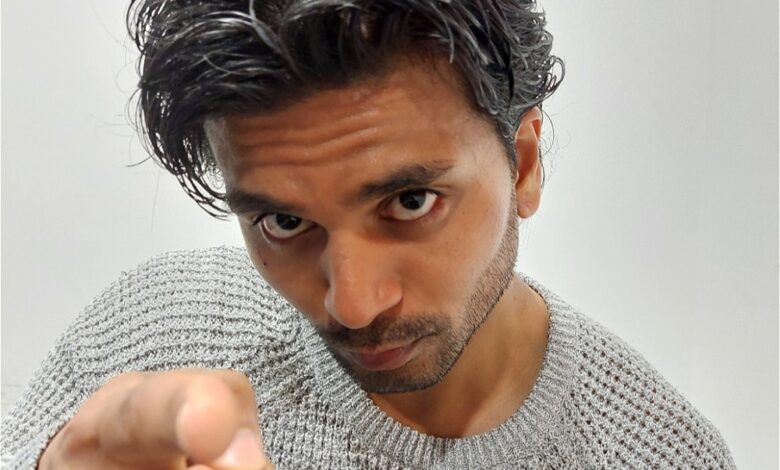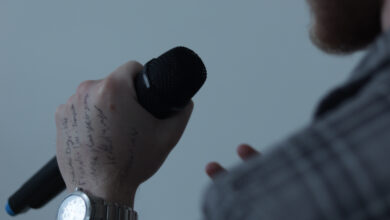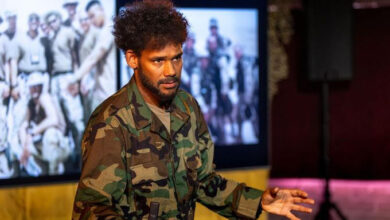Six people discuss the ethics of conscription across three different world wars, in a show that grapples with the complex philosophical debates around military conflicts.Summary
Rating
Good
In three distinct parts of the stage, there are three conversations going on. In the early stages of World War One, in the aftermath of World War Two, and in a future conflict that may be World War Three, a man and a woman discuss the morality of war, and its effect on both those who fight and those who do not. The strain that fighting a war puts on family bonds is explored through debates between parents, children, and survivors with guilt.
I Want You (referring to the famous Lord Kitchener and Uncle Sam recruitment posters) moves its focus back and forth between these locations as the arguments play out, creating a dialogue across time. These scenes cover the issues that surround war: the morality of fighting it; whether mass killing for a greater good is justified; the burden that is placed on those who survive, both the families at home and the soldiers who come back. These scenes are highly emotionally charged, which prevents these deep meditations becoming pretentious.
While the emotional impact of military conflicts is successfully shown, there is not a clear message from I Want You, as the writing surveys the issues rather than taking a strong stance on them. This means the throughline of the philosophy lacked a climax, although the lack of a clear argument did mean that the scenes felt natural rather than didactical.
The characters are three dimensional and the discussions feel realistic, with naturalistic dialogue that uses the appropriate cadence of each time period. The different political camps of the time are summed up in the different views of the characters: some believe in the cause they are fighting for; some did not want to fight; some were forced to fight. The boundary between choice and cohesion is vague.
There are strong performances from the six-strong cast (Aryan Chavda, Helen Baird, Julian Kitsz, Benedict Esdale, Zoe Carey-Williams, Erifyli Gigante) especially their voices that include believable American accents and the very clipped accents of formal society in early 20th century Britain. The time periods are also clearly delineated by costumes and lighting.
The most interesting aspect of the show is that, as it progresses, the distinctions between the time periods break down, and characters cross the boundaries to talk to those from other time periods. This hammers home the idea that this conversation happens time and time again across humanity’s history, and will never really stop – it’s just the circumstances that change.
I Want You is a detailed and passionate exploration of the morality of conscription. However, it would have been more powerful having had a clearer message. This did not have to be a simple anti or pro-war message. The message can be complex and subtle. When a work is so philosophical, I want the arguments to draw to a clear conclusion.
Written and directed by Felix Brown
Assistant Directed by Ella Rowdon
I Want You plays at Camden People’s Theatre for Camden Fringe until Saturday 9 August.







